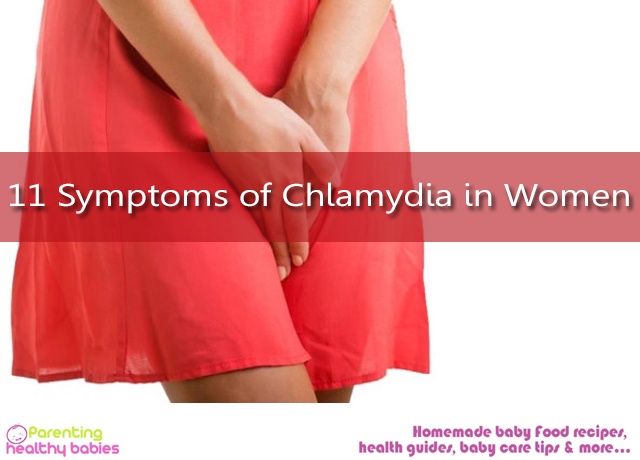The symptoms of chlamydia in women take some time to grow and make the body aware of its presence. The major signs take about an average of four weeks; a month; to spread. Among women, if undetected timely, Chlamydia can be passed on to the baby during childbirth.
What is Chlamydia in Women?
Chlamydia is a sexually transmitted infection caused by the bacterium called ‘Chlamydia Trachomatis’. It is one of the most common sexually transmitted diseases in the world, affecting about 4.2% of women and 2.7% of men. It is most commonly contracted by people aged between 15 and 25, especially women.
The main causes of Chlamydia are:
- Having unprotected sex
- Changing sexual partners too often
- Having anal sex too frequently
- Having sex with an already infected person
Although this is infection is curable if diagnosed at the right moment, it might be fatal if it is left unattended. Hence, it is vital for women; who are at a higher risk of contracting this disease; to know the major symptoms of Chlamydia. The eleven most common signs of Chlamydia among women are:
11 Symptoms of Chlamydia in Women
Cervicitis
This is the scientific name of the infection of the uterine cervix. This involves inflammation of the cervix in such a way that a portion of the uterus is pushed down towards the vagina. This is an all-encompassing symptom in which the other vital signs of Chlamydia are also visible, like painful sex, itchy vagina, burning during urination, and lower back pain. If you come across such symptoms that last for more than three days, contact the doctor without further delay.
Unusual discharge from the vagina
If you notice an unusually foul smelling mucus-like discharge from your vagina, it is a definite symptom of an infection. Moreover, if the discharge is yellow or green in colour, accompanied by frequent itching sensations, you must consult the gynaecologist immediately.
Frequent pain in the lower abdomen
Women who contract Chlamydia are likely to experience a bloated lower abdomen, which leads to pains in the lower back and uterus. Along with this, if you experience gastrointestinal discomfort and acid reflux, the chance of Chlamydia is quite high. Get yourself tested as soon as possible, to start timely medication and avoid further complications.
Painful sexual intercourse
Chlamydia is a condition that can lead to a dry vagina with cracked and itchy inner walls, vaginal ulcers, and even cysts. All of these situations lead to painful sexual intercourse. At times, there is also blood involved in penetrative sex. Whenever you feel pain while penetrating, it is a sign that you must visit the sexual health clinic and get yourself thoroughly tested.
High fever
Often, infections are accompanied with high temperatures, headaches, and backaches. Sexually transmitted diseases are spread through bacteria that populate the cells in the body, causing general sickness and discomfort. If this situation lasts for about 3 days or more, you know that it is time to visit the doctor. The general physician will assess your condition and let you know whether to see a gynaecologist for further diagnosis.
Pelvic cramps
A sexually transmitted disease like Chlamydia will naturally affect the pelvic region to begin with. This involves sudden muscular spasms and prolonged cramps. If you experience unbearable pelvic cramps for a couple of days, consult your gynaecologist for getting yourself diagnosed.
Bloody excreta
One of the most confusing symptoms of Chlamydia is bloody stool and urine. Most women think that this cannot be a sign of sexually transmitted diseases, as they are prone to affect the vaginal and pelvic area. However, as the bacterium multiplies and spreads throughout the areas around your reproductive system, it also affects the digestive and urinary tract. This results in possible ulcers inside these tracts, which leads to blood-stained stool or urine.
Burning sensation while urinating
Chlamydia is a bacterial disease that affects the region around your reproductive system. The place where it targets the most, apart from your vagina and pelvis, is your urinary tract. This results in subsequent urinary tract infections (UTIs) that cause burning sensations while peeing. Whenever you experience a sign of UTI, consult your gynaecologist for appropriate diagnosis and treatment, as it might not just be the aforementioned.
Nausea
As the bacterium; Chlamydia Trachomatis; starts to spread throughout your body, you are likely to feel sick and bloated from inside, which will result in indigestion and nausea. This feeling usually develops about a couple of weeks after contracting the disease.
Vaginal bleeding
Women who contract Chlamydia are likely to experience untimely vaginal bleeding accompanied by acute pains and sudden tightness. No matter how little, vaginal bleeding at an odd time should be reason enough for you to visit the gynaecologist without further delay.
Difficulty in conceiving
Most women, who face difficulty in getting pregnant, usually do not take into account the fact that sexually transmitted diseases can be the deterrent. One of the leading results of Chlamydia is preventing women from getting pregnant or leading to miscarriages. If you feel uneasy while having sex and are not being able to conceive through any means, get an ultrasound test done to detect the root of the problem.
When should you see a doctor for Chlamydia?
Chlamydia, if detected in its early stage, can be treated through medication that involves high doses of antibiotics. The most common antibiotics that are administered are:
- 1 gram of azithromycin
- 100 milligrams of oral doxycycline
Follow these medications as prescribed by the doctor and get your partner tested too, for better clarity on the larger situation. Make sure that you visit the doctor for a follow-up soon. Thereafter, you can gradually resume your former sex life!
